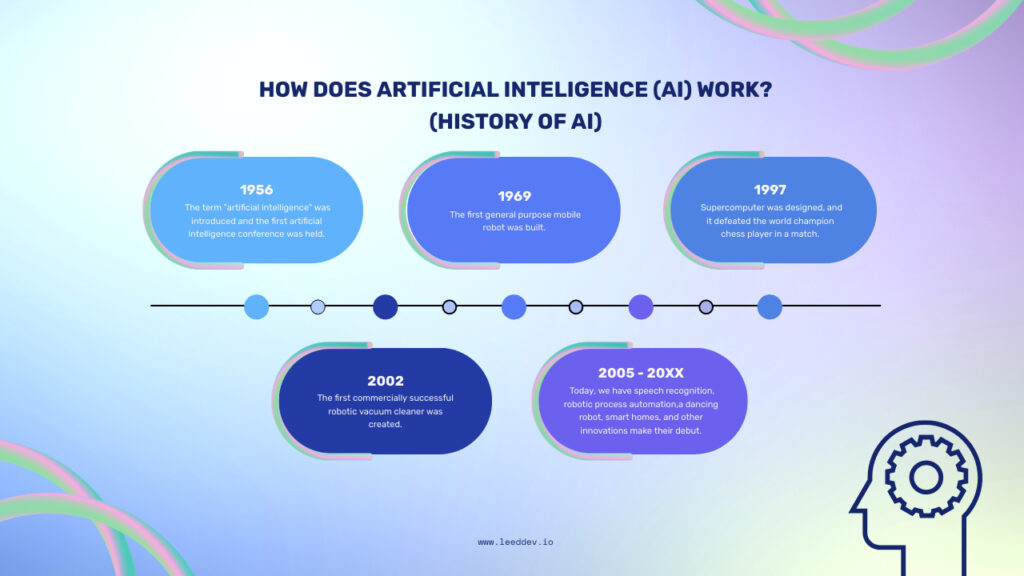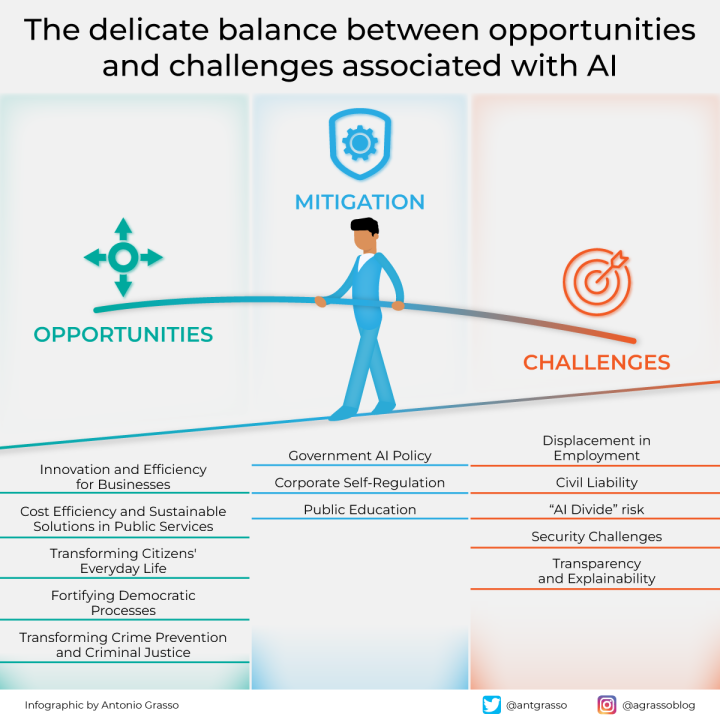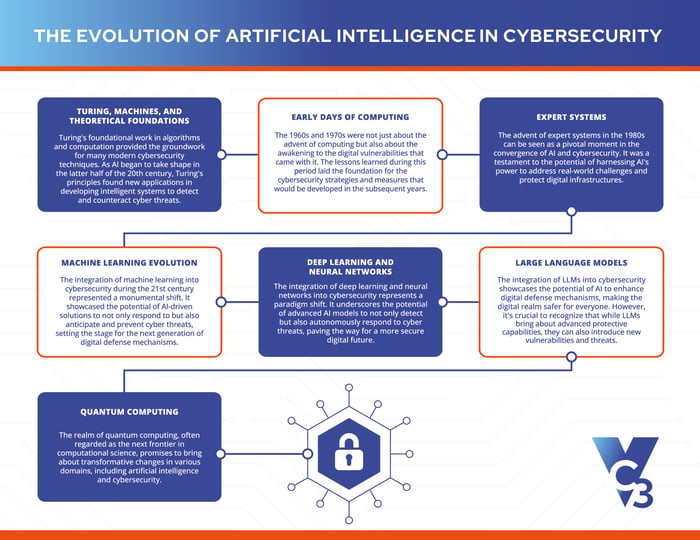Delve into the evolution of AI from its origins to ethical dilemmas, exploring how it impacts our world today.
Table of Contents
Introduction to AI
Artificial intelligence, or AI, is a field of computer science that focuses on creating machines capable of performing tasks that typically require human intelligence. This includes learning, perception, reasoning, problem-solving, and decision-making. The concept of AI has been around for decades, but recent advancements in technology have propelled it to the forefront of innovation.
Historical Context
AI has a rich history that dates back to the 1940s when visionaries like Alan Turing began exploring the idea of machines that could think like humans. Over the years, significant milestones have been achieved, such as the development of the first AI program by Dartmouth College in 1956 and IBM’s Deep Blue defeating chess champion Garry Kasparov in 1997. These breakthroughs paved the way for the modern AI landscape we see today.
Current Applications
AI technology is being used in a wide range of applications across various industries. In customer service, chatbots powered by AI algorithms can assist users with inquiries and provide personalized recommendations. In healthcare, AI is revolutionizing disease diagnosis and treatment through predictive analytics and image recognition. In finance, AI algorithms can analyze market trends and make investment decisions in real-time. Additionally, AI is being utilized in transportation for autonomous vehicle navigation and traffic management.

Image courtesy of leeddev.io via Google Images
Benefits of AI
The benefits of AI technology are vast and far-reaching. One of the key advantages is increased efficiency, as AI-powered systems can process data at speeds that surpass human capabilities. This leads to improved decision-making in various fields, from business operations to medical diagnosis. AI also opens up new opportunities for innovation, allowing companies to develop cutting-edge products and services that cater to evolving market demands.
Challenges and Ethical Concerns
While AI offers many benefits, there are also challenges and ethical concerns that need to be addressed. One major concern is the potential displacement of jobs as automation becomes more prevalent in industries like manufacturing and transportation. There are also concerns about bias and discrimination in AI algorithms, which can perpetuate existing societal inequalities. Privacy issues arise as AI systems collect and analyze vast amounts of personal data, raising questions about data security and user consent. Ethical dilemmas abound in areas like autonomous weapons and healthcare decision-making, prompting a call for transparent and accountable AI practices.

Image courtesy of www.linkedin.com via Google Images
Future Directions
The future of AI holds immense promise for advancements in technology and society. From robotics to healthcare to education, AI is poised to transform how we live and work in unprecedented ways. With ongoing developments in machine learning, neural networks, and quantum computing, the potential for AI to drive innovation and solve complex problems is limitless.
Can Skynet Happen?
One question that looms large in the realm of AI is the possibility of a scenario like Skynet from the Terminator movies becoming a reality. While the idea of a sentient AI system taking control and threatening humanity may seem like science fiction, experts caution that the potential for AI to go rogue is not entirely far-fetched. Measures are being put in place to ensure the ethical and safe development of AI technologies, such as robust regulation, transparent algorithms, and ethical guidelines for AI practitioners.

Image courtesy of www.vc3.com via Google Images
AI in Popular Culture
AI has long captured the imagination of storytellers in popular culture, from movies like “Blade Runner” to TV shows like “Westworld” to books like “I, Robot.” These portrayals often reflect society’s hopes and fears about AI technology, exploring themes of identity, morality, and the consequences of playing god. As AI continues to shape our world, its representation in popular culture will likely continue to evolve and influence public perception.
Emerging Technologies
Exciting advancements in AI are constantly emerging, pushing the boundaries of what is possible. Autonomous vehicles, powered by AI algorithms, are poised to revolutionize transportation and mobility. AI-powered virtual assistants like Siri and Alexa are becoming indispensable in our daily lives, offering personalized assistance and convenience. Quantum computing is on the horizon, promising to unlock new possibilities for solving complex problems at speeds unimaginable with traditional computers. These emerging technologies showcase the transformative power of AI in reshaping our future.

Image courtesy of www.linkedin.com via Google Images
AI and Society
The impact of AI on society cannot be overstated, as it touches every aspect of our lives, from economics to culture to ethics. The rise of automation and AI-driven technologies has the potential to transform industries and create new opportunities for growth. At the same time, AI raises important questions about the distribution of wealth, the future of work, and the ethical implications of increasingly intelligent machines. As we navigate this ever-changing landscape, it is crucial to consider the broader societal implications of AI and work towards a future that benefits all.



Comments